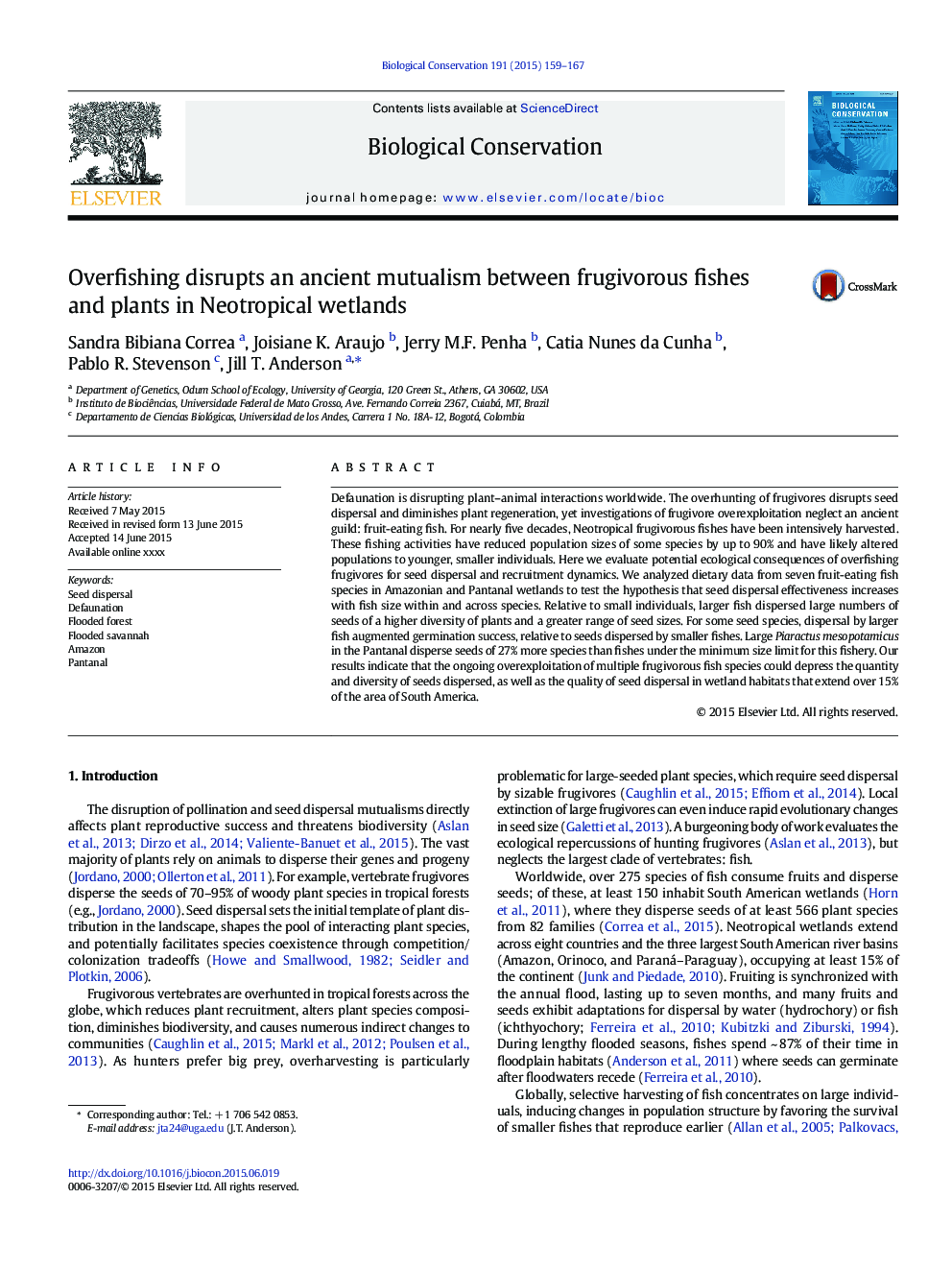| Article ID | Journal | Published Year | Pages | File Type |
|---|---|---|---|---|
| 6298935 | Biological Conservation | 2015 | 9 Pages |
Abstract
Defaunation is disrupting plant-animal interactions worldwide. The overhunting of frugivores disrupts seed dispersal and diminishes plant regeneration, yet investigations of frugivore overexploitation neglect an ancient guild: fruit-eating fish. For nearly five decades, Neotropical frugivorous fishes have been intensively harvested. These fishing activities have reduced population sizes of some species by up to 90% and have likely altered populations to younger, smaller individuals. Here we evaluate potential ecological consequences of overfishing frugivores for seed dispersal and recruitment dynamics. We analyzed dietary data from seven fruit-eating fish species in Amazonian and Pantanal wetlands to test the hypothesis that seed dispersal effectiveness increases with fish size within and across species. Relative to small individuals, larger fish dispersed large numbers of seeds of a higher diversity of plants and a greater range of seed sizes. For some seed species, dispersal by larger fish augmented germination success, relative to seeds dispersed by smaller fishes. Large Piaractus mesopotamicus in the Pantanal disperse seeds of 27% more species than fishes under the minimum size limit for this fishery. Our results indicate that the ongoing overexploitation of multiple frugivorous fish species could depress the quantity and diversity of seeds dispersed, as well as the quality of seed dispersal in wetland habitats that extend over 15% of the area of South America.
Related Topics
Life Sciences
Agricultural and Biological Sciences
Ecology, Evolution, Behavior and Systematics
Authors
Sandra Bibiana Correa, Joisiane K. Araujo, Jerry M.F. Penha, Catia Nunes da Cunha, Pablo R. Stevenson, Jill T. Anderson,
